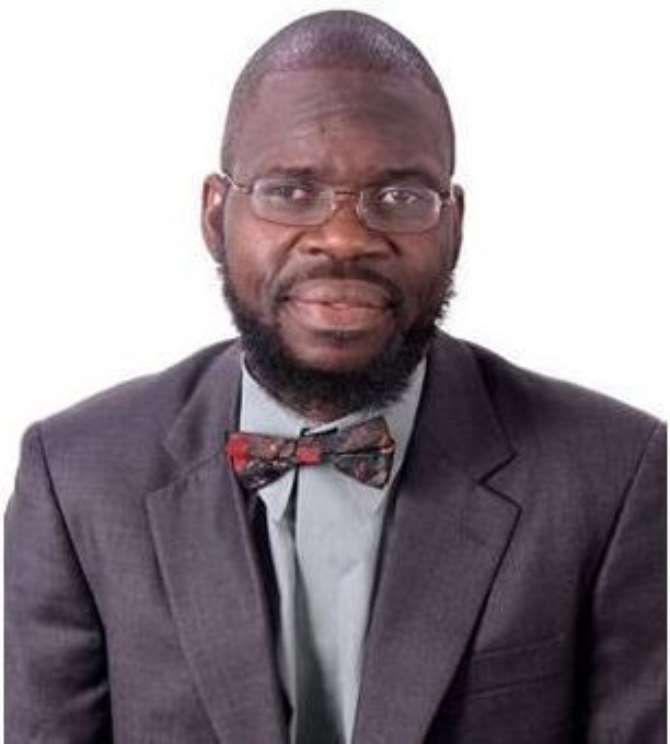A Psychologist Explains Ways To Rethink The Organizational Structure, Independence, And Designation Of EFCC

Undeniably, the current 1999 Constitution of the Federal Republic of Nigeria has continued to generate controversy among various sections of the country in recent times. From the point of legal psychology, the Constitution clearly appears not be helpful on sections relating to the legislation that established the 2004 Economic and Financial Crimes Commission (EFCC). Legal scholars have raised many questions regarding the conflict between the Constitution and the administrative powering of the EFCC Act. Is the EFCC a department of the Federal Ministry of Justice? Is it part of the presidency? Is it an extra-ministerial department? And more puzzling questions especially as it relates to the appointment of its directorship and leadership. When the President makes the appointment of the Executive Director (Chairman), must the appointment be subject to the Senate’s confirmation or decision to reject? I leave these questions to the lawyers, the legislature, and the courts given that our system is patterned after the American Constitutional structure, although in a hurriedly and deformed manner.
I am suggesting that like the Federal Bureau of Investigation (FBI) of America, the EFCC Chairmanship should be appointed for a single 5 or 10-year term by the nation’s President and confirmed by the Senate so that the leadership cannot be under the political influence of any politician like a current or a future President. By this way, the institutional trust and political independence of the EFCC will remain generally firm. A new label like the “Executive Director” in place of the commercially, corporately, or politically sounding label of the term “Chairman” should equally be adopted.
Every EFCC Chief must always try to shield the agency from politics, and not allow itself to be used or seduced by any President as a wrecking ball towards specific targets and should a President present a financial danger to the public while in office, he or she can be subject to investigation once out of office.
Like the FBI, the EFCC is a direct creation of the statute, and its structure and operations should be monitored by the very statute creating it. It is important to point out that the EFCC is only to be supervised by the Attorney General of the Federation in respect of reporting about its prosecutions. But it is not a sub-ministry or department under the Ministry of Justice.
The EFCC activities should be diligently and regularly scrutinized by a variety of entities like the National Assembly through several oversight committees in the Senate which reviews its budget appropriations, programs, and special investigations. The results of EFCC investigations should be reviewed by the judicial system especially during court proceedings within the Ministry of Justice, the EFCC is generally responsible to the attorney general. The EFCC’s intelligence activities can be overseen by the office of National Intelligence Agency.
As we know, the office of the Minister of Justice is purely a political appointment so with the current Attorney General of the Federation equally serving as the Minister of Justice, that makes the work of the EFCC director exceptionally complicating. These two offices ought to be separated for democratic and nonpolitical reasons.
The EFCC must always act independently as it is expected to conduct politically independent investigations in matters relating to financial crimes especially. The EFCC serves the President and the nation by leading the law enforcement body in an independent and apolitical manner. On ethical, moral, and societal grounds the EFCC director’s loyalty must only be to the Constitution and the rule of law. Full stop.
The Executive Director of the EFCC as the head of one of Nigeria’s primary federal law enforcement agency is responsible for its day-to-day operations.
That is why that aspect of the EFCC Act that requires the President to appoint a Secretary, a Board and Board members for the Economic and Financial Crimes Commission (EFCC) followed by Senate confirmation remains troublesome.
The EFCC is not an organization of TV stations or Food agencies with their respective Boards. It is not a commercial, marketing, or ministerial agency that requires a formal or ceremonial board. If there is going to be a board it should be a body of professional experts and practitioners with investigative, law enforcement, forensic, psychological, accounting, and managerial experiences.
In contemporary law enforcement circles, the appointment of the position of a secretary which is like an administrator or manager to the executive director should not be a presidential appointment. In fact, the position should be changed to that of a Chief of staff, and to be internally picked by the Executive Director. It is the Executive Director’s responsibility to internally appoint a secretary (chief of staff) with executive, administrative, policing, and investigative skills who can be trusted with the most sensitive information in the agency.
Like the secretary or chief of staff, there should be Deputy Executive Directors internally appointed or picked from outside by the Executive Director and his office. Each deputy must come with strong law enforcement credentials to assist the executive director in the respective areas of administration, intelligence, and operations.
These persons should be the ones who can automatically act or represent the director and the community of professional law enforcement investigators. The Executive director, administrators and other Executives must be politically neutral and experienced in financial crime enforcement and other investigations.
I have long suggested somewhere that the name, “Economic and Financial Crimes Commission” which was named and born out of pressure needs refurbishing. As a designation, it is too broad, and an all-over-the place term, regarding the wording, symbolism, and delivery. It is a label that has outlived its transitional use and period. From the point of symbolic human psychology, a breakdown of most of its respective words “Economic”, “Financial”, and “Commission” as well as the supervisory function, “Chairman” is on face value, collectively suggestive of an advisory board on “Crime”. Its current designation portrays images of a compensation body, a review forum, a charitable board, a delegating board, a trading house, a conciliation board, operating under a chairman, as in a commercial or political head.
I have strongly suggested that the National Assembly change it to such name as “Federal Bureau of Criminal Investigation” (FBCI), or the “Federal Force for Investigation (FFI).
I am also suggesting that the current training Academy in Nigeria should bear a new name along the lines of the already noted new labels, the FBCI or FFI. The new name of the Academy could be called the “National Investigative Training Institute (NITI).
As a national intelligence, security, and anti-crime agency, the EFCC, with all its preventive, investigative and prosecutorial powers, should be continuously strengthened in the fight against crimes like money laundry, bribery, financial malpractices, forgery, land fraud, alien fraud, illegal schemes, and other related crimes. In fact, its functions need to be broadened now that the federal based Nigeria Police Force needs to be decentralized for the good of local jurisdictions. Such functions should include these intersecting crimes; domestic and international terrorism, foreign counterintelligence, cybercrime, organized crimes, technology/stock market scam, white-collar crime, domestic/international terrorism, foreign counterintelligence, intellectual property theft, antiracketeering, antitrust and assassination, human trafficking, gambling, drug and gun trafficking, and hostage-takings/kidnappings.
In the face of daunting challenges in Nigeria, in matters of public corruption especially and our increasingly polarized environment the EFCC and other related organizations must have a leadership centered on important approaches as they relate to ethics standards.
The leadership composition should be above personal impunity and self-promotion, have sense of ethics and values, above political loyalty, and interference, and remain loyal to the Constitution and to the law.
I will end by noting that to make the EFCC (FBCI or FFI) continuously modern it must strive towards becoming a fully independent entity, working without fear or favor to anyone including the President, or any Minister, and must strive to be guided by the likes of the International Association of Chiefs of Police (IACP) governed by the following Law Enforcement Code of Ethics:
- As a law enforcement officer, my fundamental duty is to serve the community.
To safeguard lives and property.
To protect the innocent against deception, the weak against oppression or intimidation and the peaceful against violence or disorder.
To respect the constitutional rights of all to liberty, equality, and justice.
To keep my private life unsullied as an example to all and will behave in a manner that does not bring discredit to me or to my agency.
To maintain courageous calm in the face of danger, scorn, or ridicule.
To develop self-restraint; and be constantly mindful of the welfare of others.
Honest in thought and deed both in my personal and official life.
To be exemplary in obeying the law and the regulations of my department.
Whatever I see or hear of a confidential nature or that is confided to me in my official capacity will be kept ever secret unless revelation is necessary in the performance of my duty.
I will never act officiously or permit personal feelings, prejudices, political beliefs, aspirations, animosities, or friendships to influence my decisions.
To act with no compromise for crime and with relentless prosecution of criminals, I will enforce the law courteously and appropriately without fear or favor, malice, or ill will, never employing unnecessary force or violence and never accepting gratuities.
I recognize the badge of my office as a symbol of public faith, and I accept it as a public trust to be held so long as I am true to the ethics of police service.
To never engage in acts of corruption or bribery, nor will I condone such acts by my colleagues or anyone else.
I will cooperate with all legally authorized agencies and their representatives in the pursuit of justice.
I know that I alone am responsible for my own standard of professional performance and will take every reasonable opportunity to enhance and improve my level of knowledge and competence.
To constantly strive to achieve these objectives and ideals, dedicating myself before God to my chosen profession…law enforcement.
In conclusion, I strongly suggest that we rethink the whole structure of the EFCC and other related agencies as our young but troubled nation work towards a future that aims to democratic openness.
Prof. John Egbeazien Oshodi, an American based Police/Prison Scientist and Forensic/Legal/Clinical Psychologist. A government Consultant on matters of forensic-clinical adult/child psychological services in the USA; Chief Educator and Clinician at the Transatlantic Enrichment and Refresher Institute, an Online Lifelong Center for Personal, Professional and Career Development. The Founder of the Dr. John Egbeazien Oshodi Foundation, Center for Psychological Health and Behavioral Change in African settings. In 2011, he introduced the State-of-the-Art Forensic Psychology into Nigeria through N.U.C and the Nasarawa State University where he served in the Department of Psychology as an Associate Professor. The Development Professor and International Liaison Consultant at the African University of Benin, and a Virtual Faculty at the ISCOM University, Benin of Republic. Author of over 36 academic publications/creations, at least 200 public opinion writeups on African issues, and various books.
Prof. Oshodi was born in Uromi, Edo State, Nigeria to parents with almost 40 years of police/corrections service, respectively. Periodically visits home for scholastic and humanitarian works. [email protected]

